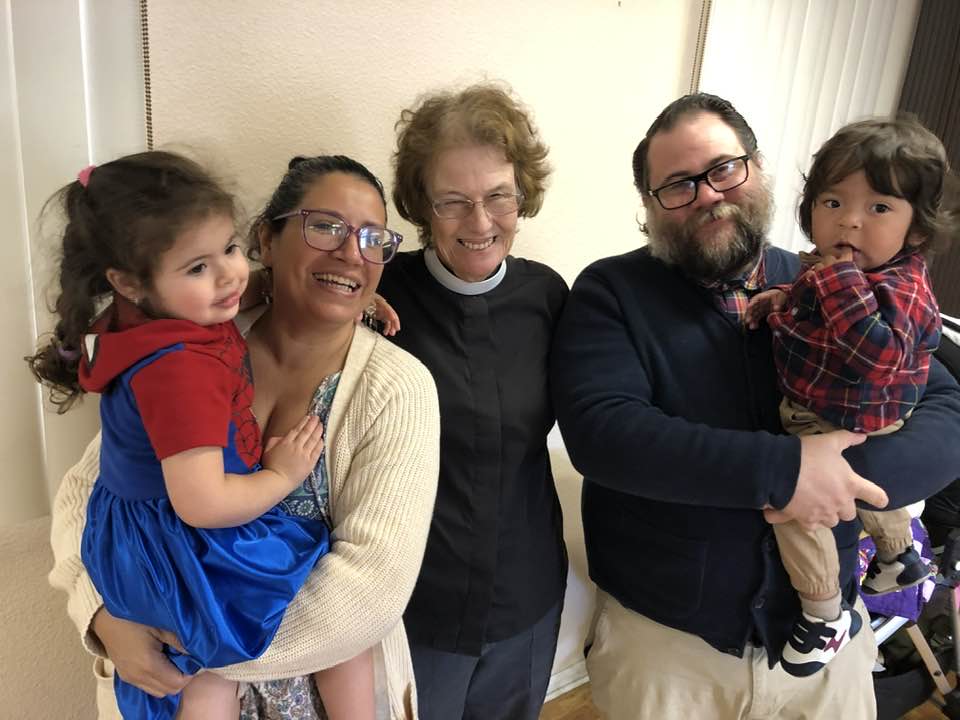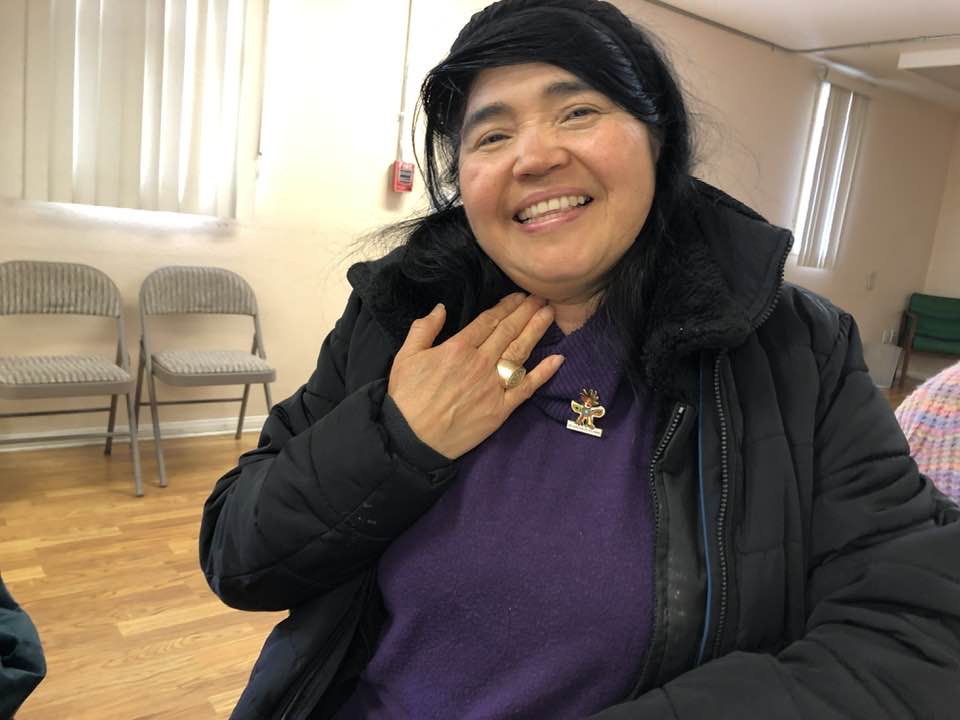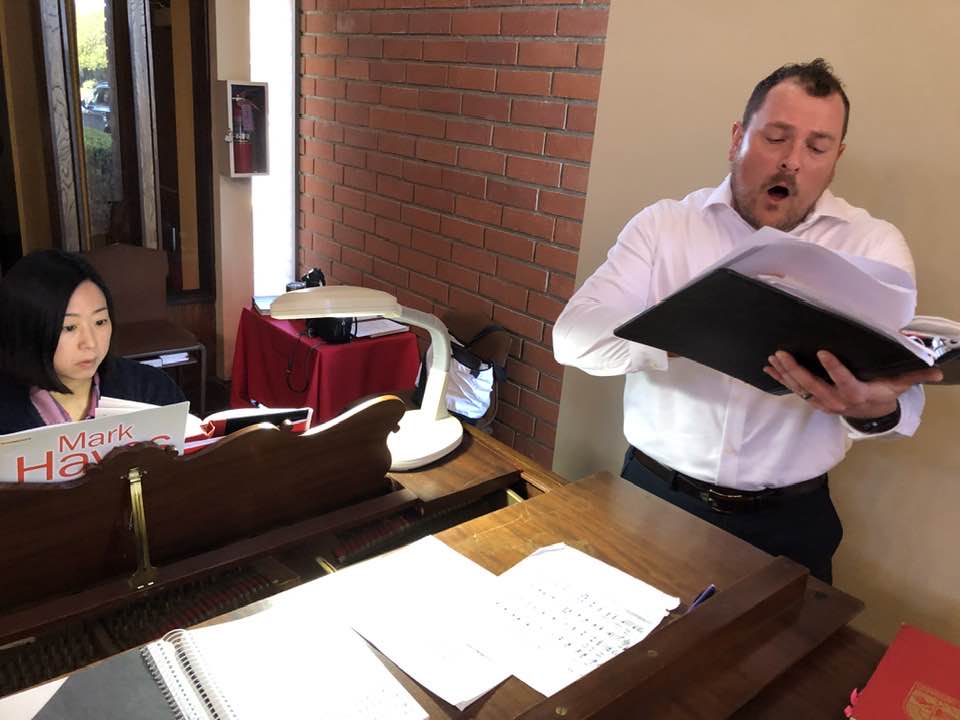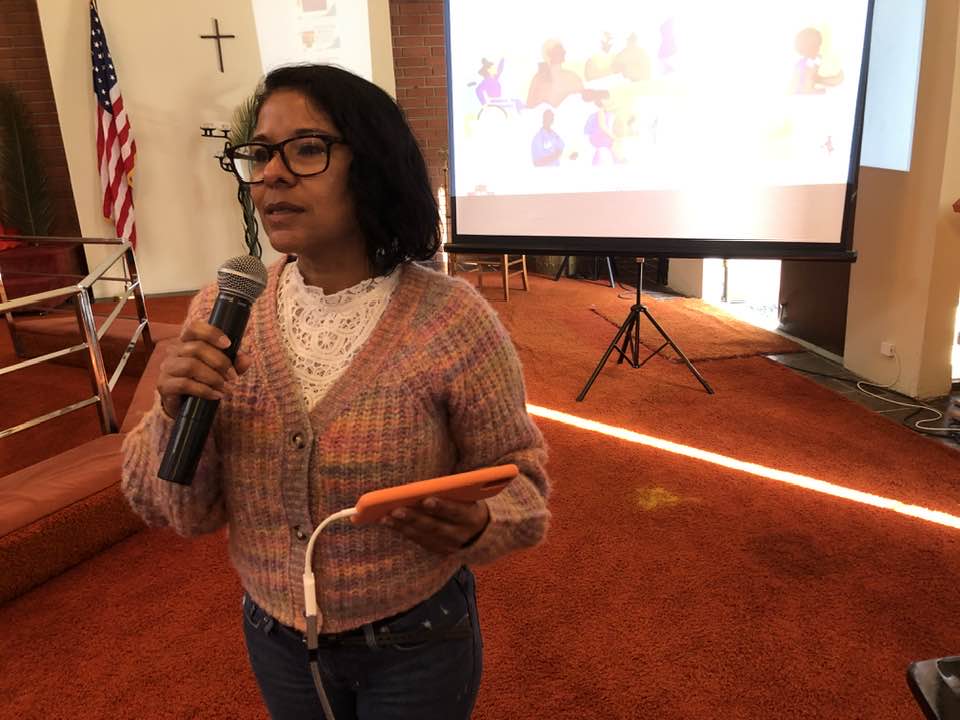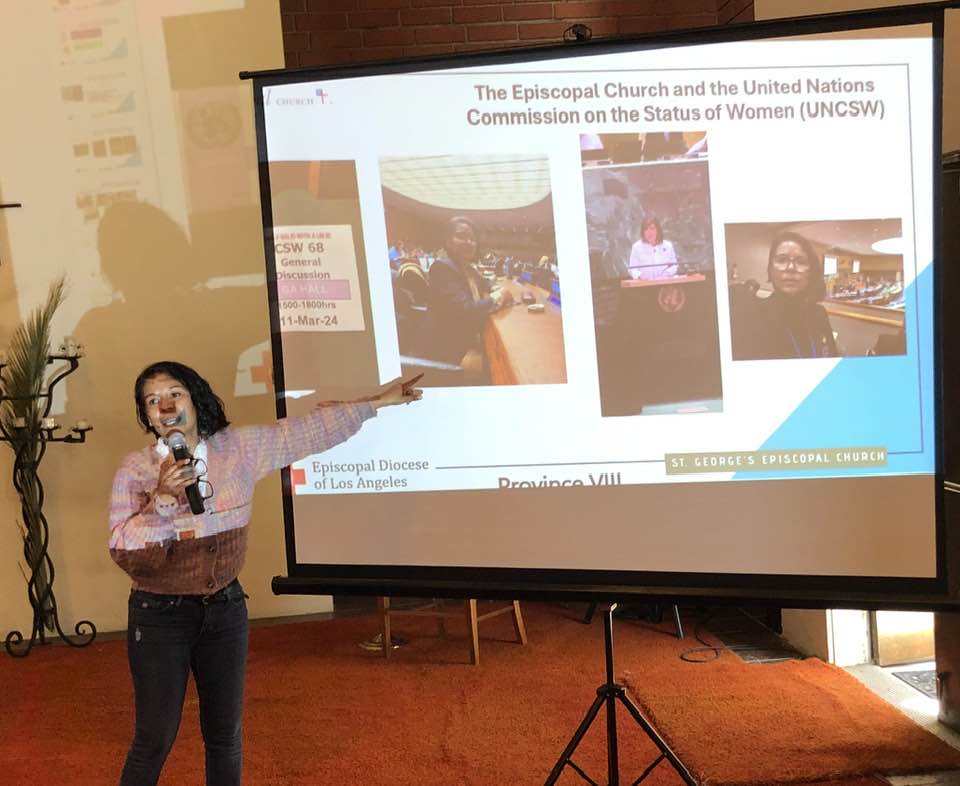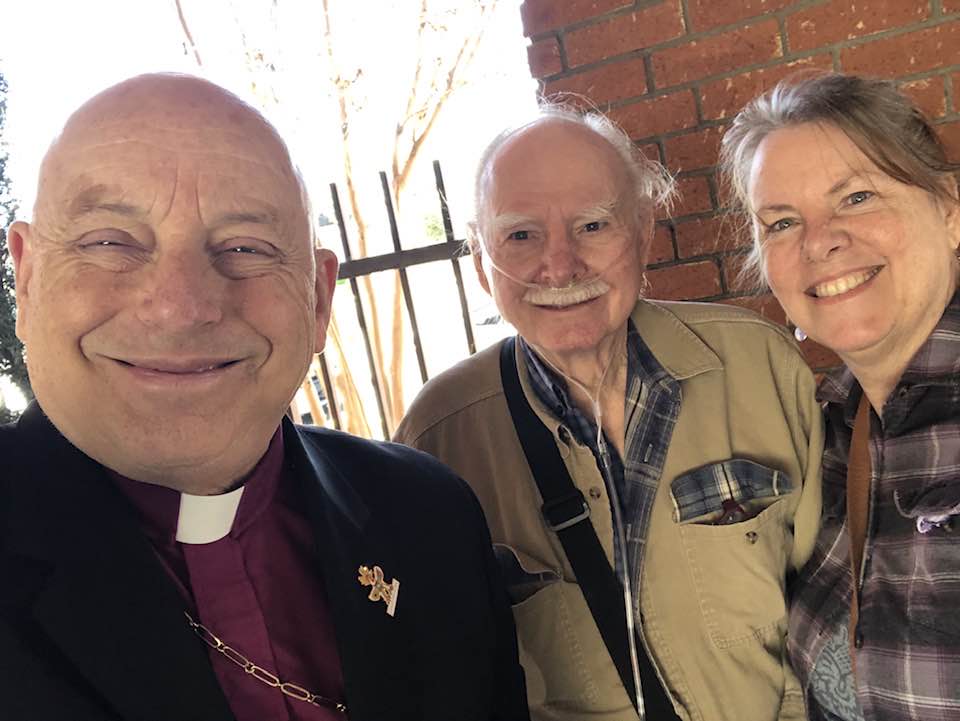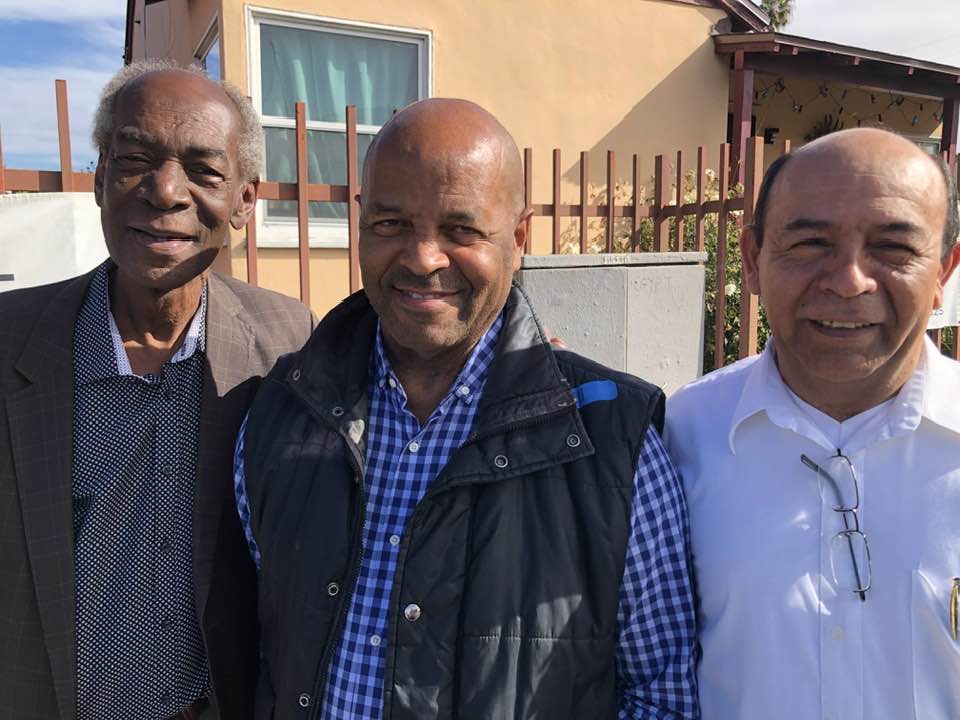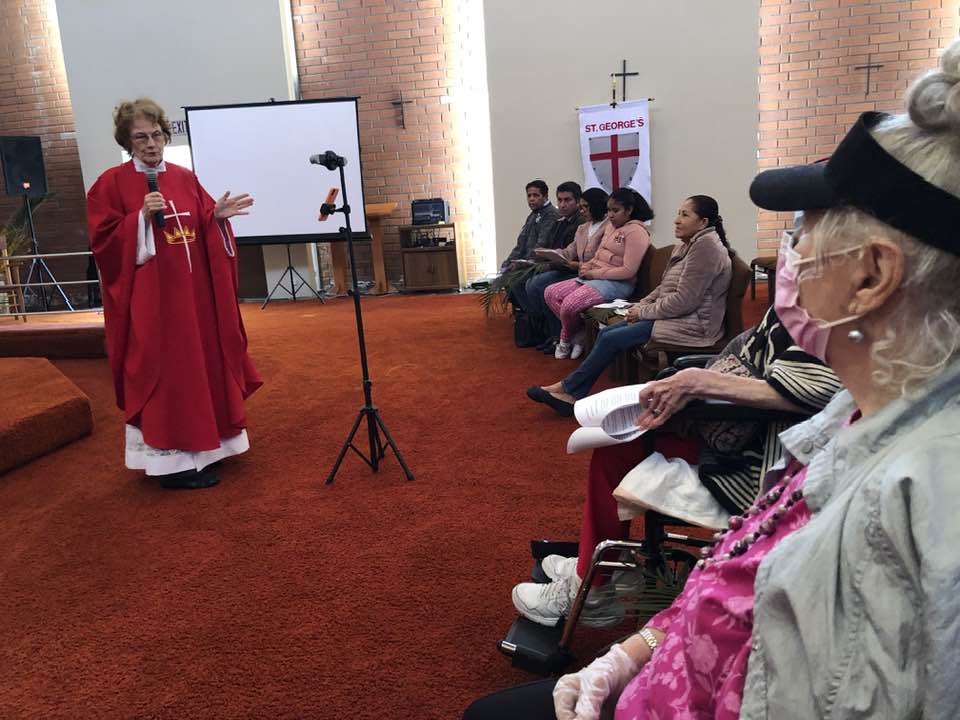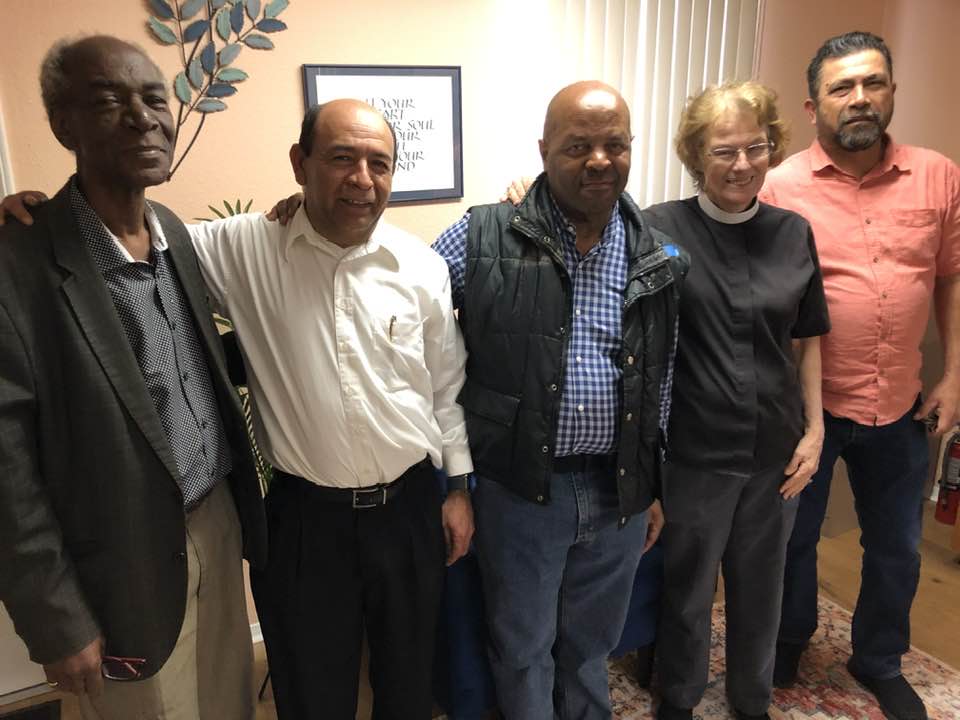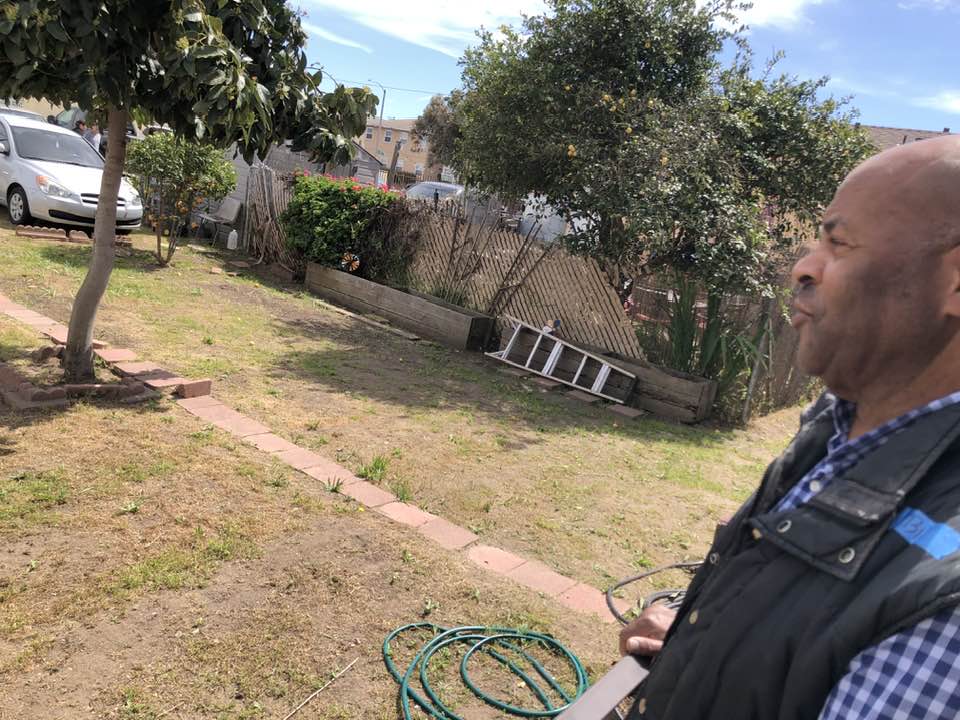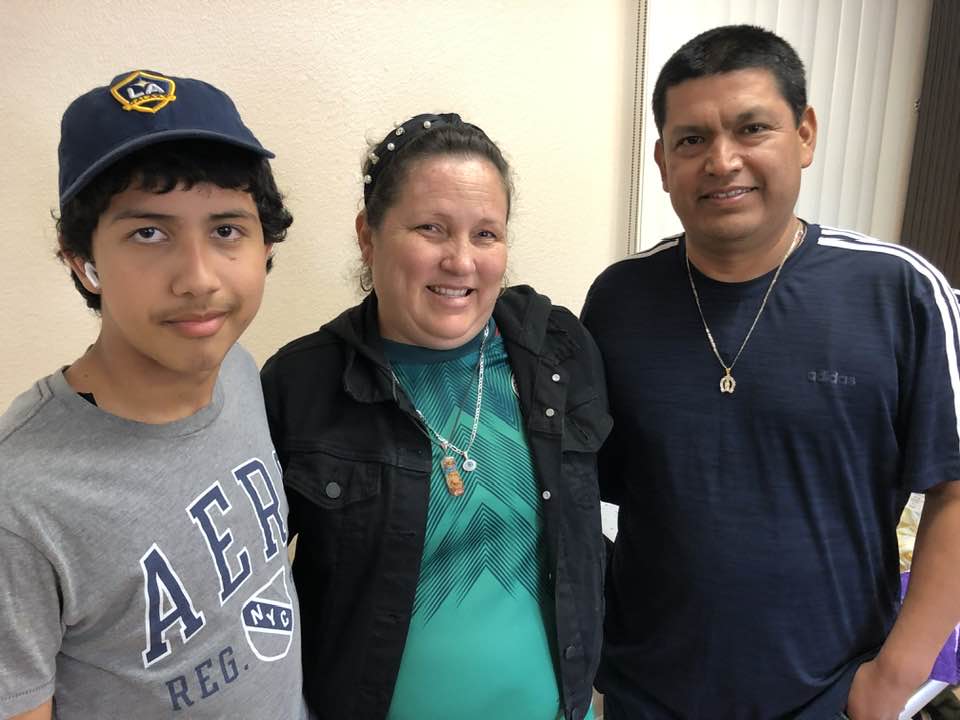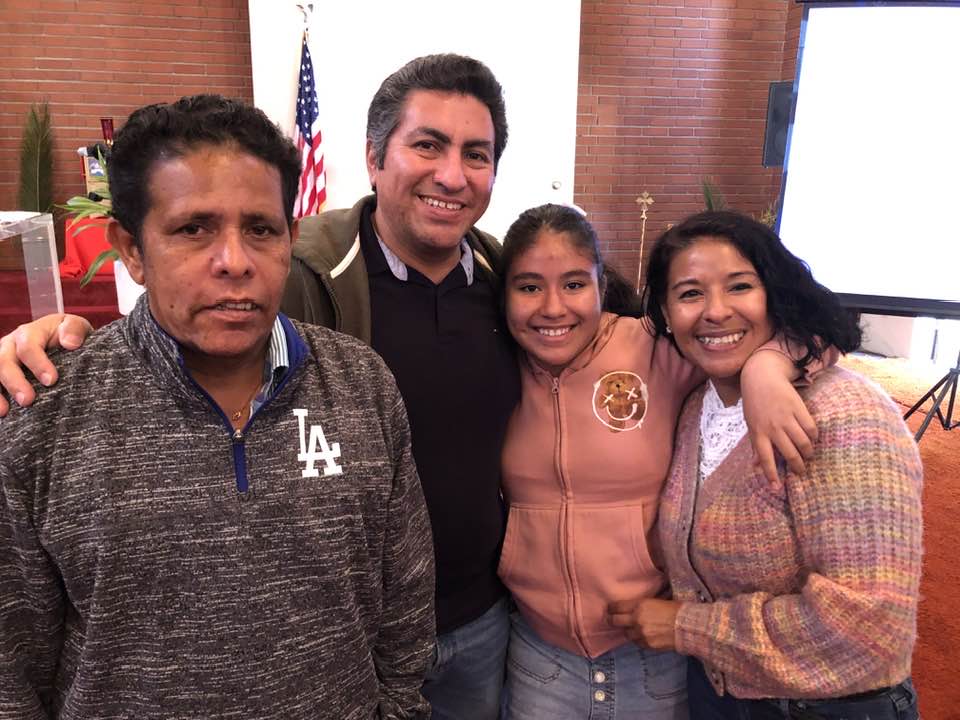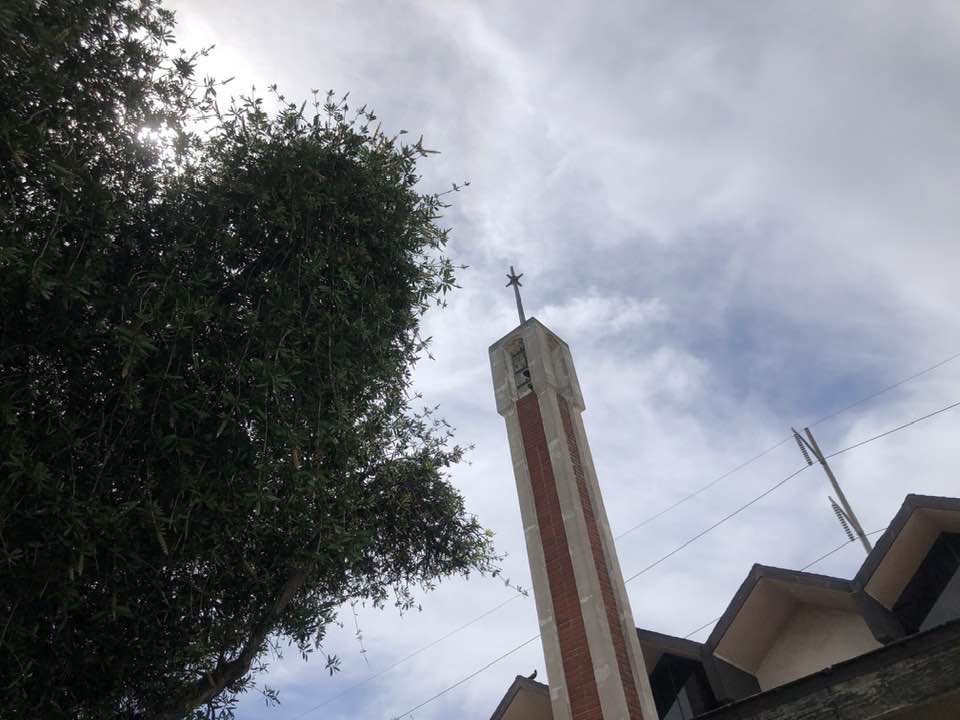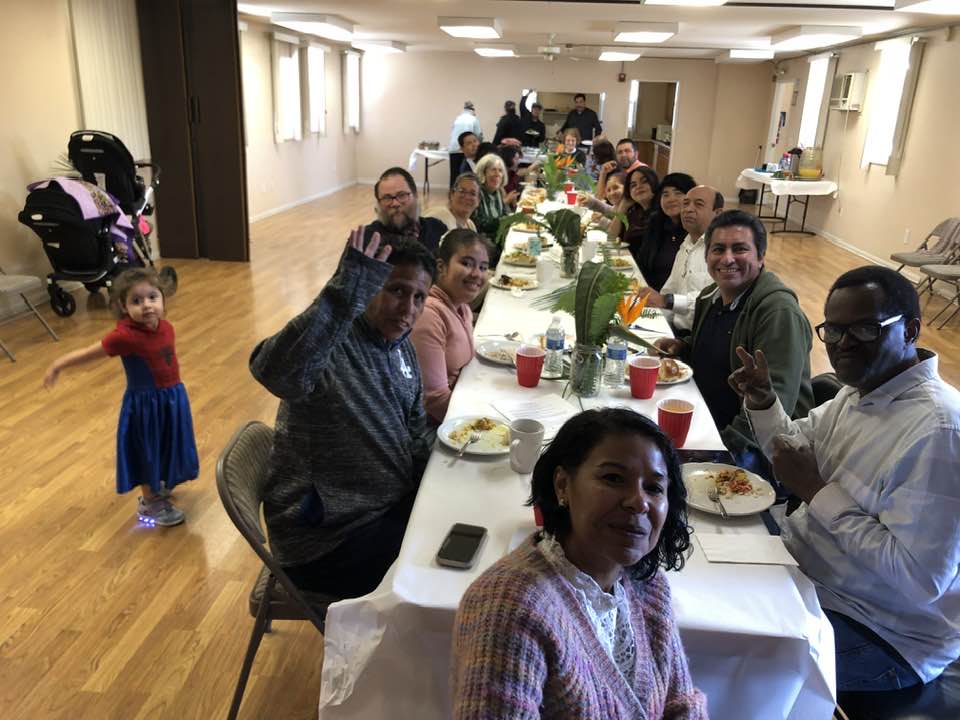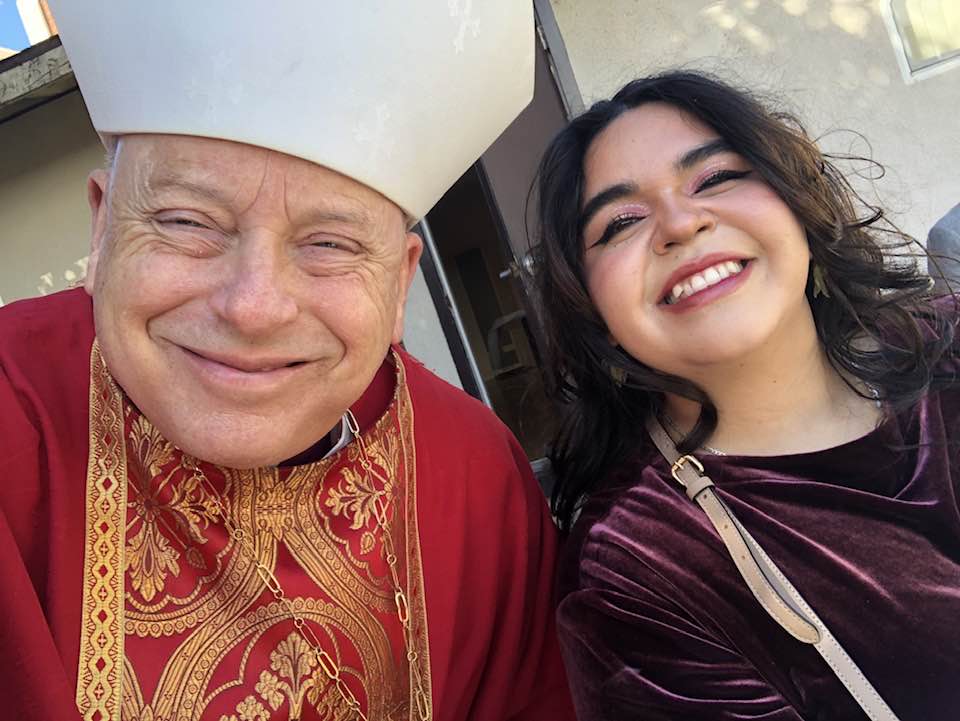
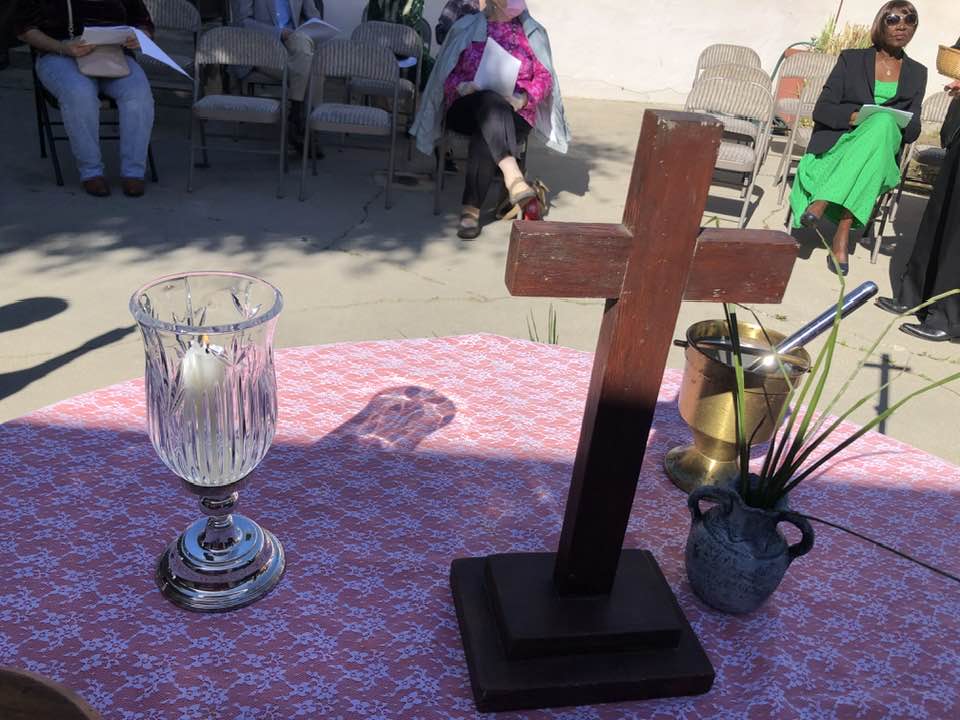
I bring greetings in the name of Christ on behalf of the whole Episcopal Diocese of Los Angeles. Over 130 churches are doing their best this morning to relive our Lord’s dizzying week’s descent from triumph to agony. Buoyed by the crowds with shouts of hosanna only to be buried in hatred. Cruelly manipulated by the Roman authorities, how swiftly the people turned on Jesus Christ.
I was last at St. George’s five years ago this very day, a Sunday in Lent, but not Palm and Passion Sunday. I’ve especially been looking forward to our time together today over lunch and the opportunity to hear from your own Karina Flores, a former Guatemalan journalist and one of Presiding Bishop Michael B. Curry’s delegates to the 68th United Nations Commission on the Status of Women. Karina’s ministry representing St. George’s and our diocese and province is especially fitting in view of the Rev. Canon Patricia O’Reilly’s own peace and justice-rooted vocation, which has made her a living legend in our diocese.
But this isn’t the Sunday to dwell on our commitment to justice and righteousness or even congratulate ourselves for staying together in loving community as at St. George’s. It’s not the day to celebrate the Christian values of forbearance, devotion, and courage. Those hard days in Jerusalem, even among Jesus’s friends, such qualities weren’t on display.
Continuing the cycle of holy coincidence, as I was with you five years ago today, a year ago today I was in Jerusalem with 25 fellow pilgrims, walking in our Lord’s footsteps. Seeing the sacred sites and praying for peace. We couldn’t have imagined Hamas’ savage attack on Israel, which killed 1,200, or Israel’s savage counterattack against Hamas in Gaza, which has killed 30 times more. But we did visit places where, among our Lord’s own friends and followers, forbearance, devotion, and courage all failed, exposing our Lord to the smiters.
In the Passion according to Matthew, the story begins in Bethany, on the Mount of Olives. Our pilgrim band was there last year. Experts think that in the first century, it was a community of Galileans and Nazarenes, people Jesus knew especially well. Combining all the gospel narratives about Jesus’s day in Bethany, we can safely conclude that the woman who anointed Jesus was Mary of Bethany, sister of his other friends Martha and Lazarus.
So Bethany was our Lord’s Jerusalem hang, with people who loved him best. The one place in the world where he should’ve been safe. And yet when Mary anoints our hardworking savior, an argument erupts over the propriety of using such expensive ointment. As he always did, Jesus used it as a teaching moment. But with the rancor still echoing in the room, Judas used the moment as a pretext for treachery. Even in Jesus’s family of friends, forbearance failed.
From Bethany, you walk for perhaps a half-hour down the Mount of Olives to the traditional site of the Garden of Gethsemane, where devotion also failed his followers, who slept while our Lord sweated blood over his ghastly choice between life and self-sacrifice. If you’re like me during the passion replay every year, you’re tempted to say “I would’ve stayed awake” – “I wouldn’t have shouted ‘Crucify him!’” – “I would’ve thrown myself around the light of Christ to forestall its extinguishment.” But our Lord’s followers knew his preciousness best of all. And yet they slept. Where would I have found the strength to do better?
There’s even a place in Jerusalem to commemorate Peter’s failure of courage, a beautiful church called St. Peter in Gallicantu, meaning “cock’s crow.” Experts think the palace of Caiaphas the high priest was there. In the courtyard and forecourt, Peter denied Jesus three times, as Jesus had predicted. It’s one of the gospel’s most heartbreaking and relatable stories. Another opportunity to reflect on what we would’ve done. To think about the times we’ve let others down. Each of us has done it to someone and had it done to us. Each has felt denied, betrayed, ignored, marginalized, or plunged into lonely isolation.
After denying Jesus, Peter became a leader in the church and died a martyr. We too can redeem our bad days with days of courage, mercy, and generosity. And yet how different might Holy Week be if those closest to our Lord had stood up for him. If they’d stayed awake and kept watch with him. If they’d kept their complaints to themselves during his brief sabbath.
Many years ago, a United States politician named Tip O’Neill said, “All politics is local.” Our ministry in Christ is local, too. Don’t get me wrong. Our faith in the risen Christ gives us universal authority. We can and must speak peace to those in power in Israel and Palestine and Russia and Ukraine. We can and must speak justice to Washington on behalf of immigrant workers and the dignity of every human being. All over our diocese, we can and must stand up for unhoused people and, if we can, build affordable housing on our campuses for neighbors with nowhere to lay their heads.
But we’ll do this work better when the home fires are lit and well-tended. When our homes are safe for everyone. When in our congregations, we put a premium on fellowship, community, mutual support, and curiosity about one another’s narratives. When we manage conflict with love. Show up for one another, in sickness and in health. And never deny the Christ in one another. Oh, but if on the Mount of Olives that day – with the hotheads so quick to criticize Mary, and old Judas with one foot out the door – if only that day in Bethany, they’d been just a little more like St. George’s.
— My sermon at St. George’s Episcopal Church in Hawthorne, where I was graciously welcomed by priest in charge Canon O’Reilly, senior warden Lou Duncan, and junior warden Fredy Cordon. A delicious lunch followed the service. My chaplain, Bill Hunter, envisions a spring planting in the five-year-old parish garden, which we blessed, as we did five years ago. Driving all the way from Apple Valley, Dennis Pederson and his daughter, Lillian, brought orange marmalade and jam for everyone. Vocalist Eric Wolterding and pianist Yumi Hashimoto carried the day. Our eloquent speaker on the UN commission, Karina Flores, told me her fellow Guatemalan, Luis von Ahn, invented Duolingo.
